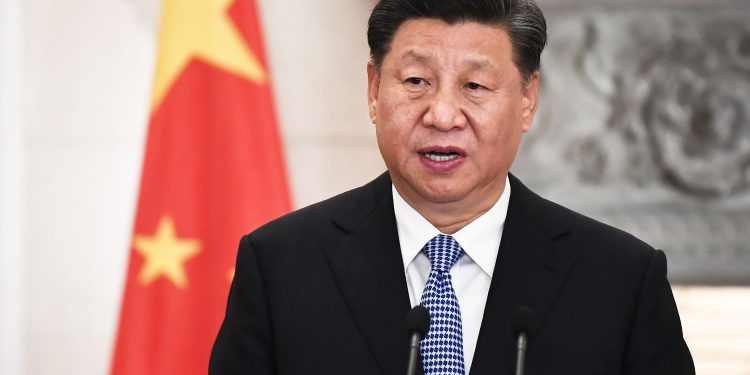Beijing: The blind pursuit of “absolute national security” coupled with excessive defence spending can lead to the Soviet-style collapse, China’s top foreign policy advisor has warned the ruling Communist Party headed by President Xi Jinping.
The pursuit of “absolute national security” can extract a heavy price, Jia Qingguo, member of China’s top political advisory body – the Chinese People’s Political Consultative Conference (CPPCC) – has said, citing the collapse of the Soviet Union as proof of the pitfalls of putting military expansion over long-term security.
The collapse of the Soviet Union, officially known as the Union of Soviet Socialist Republics or USSR, ruled by the Soviet Communist Party has become a major lesson being taught in top Communist Party of China (CPC) schools across the country to avert decisions that lead to its fall.
Many Chinese leaders have frequently referenced the erstwhile USSR and asked the CPC to learn from its historical experience.
Months after assuming power in 2012, President Xi himself said that the breakdown in party disciplines led to the downfall of the erstwhile USSR’s 20 million-strong Communist Party.
“If Party members did and said whatever they wanted, the party would turn into a mob,” Xi said.
Jia, who was also a former dean of the international relations school at Peking University, says the unfettered pursuit of security “will see the costs go up drastically and the benefits go drastically down until the costs outweigh the benefits”, the Hong Kong-based South China Morning Post reported on Sunday.
“To ignore the comparative nature of security, and blindly pursue [it] absolutely will result in making the country less secure, as it inflicts unbearable costs and fails to achieve absolute security,” Jia, who sits on the Standing Committee of the CPPCC, writes in the latest issue of the bimonthly Journal of International Security Studies.
His 22-page article is full of thinly veiled criticisms against hawkish outlooks, the Post reported.
Too much emphasis on defence spending could trigger an arms race making all countries involved less secure, writes Jia, a specialist on US affairs himself.
He cites the Soviet Union’s decades of massive defence spending as a typical example of the drawbacks of ignoring long-term security, which led to the Soviet federation’s ultimate disintegration in 1991.
“The result was the Soviet Union lagged behind in economic development and was not able to support its massive defence spending. People’s lives did not improve for a long time and this caused loss of political support,” he notes.
“Acts like this sacrifice long-term interests for short-term gains, and to a great extent sped up the [Soviet] turmoil and collapse,” he writes.
Internal and external security has become central to the CPC policies, ever since Xi took over power.
China’s military budget was shot up to over USD 200 billion last year and it’s expected to climb further when the new budgetary proposals would be announced in March this year.
Chinese analysts, however, argue that unlike the Soviet Union, China paid equal attention to the economic development prompting the country to emerge as the second-largest economy of the world.
According to the latest official data, the Chinese economy grew at 8.1 per cent in 2021 to USD 18 trillion.
Also, Xi carried out the biggest anti-graft purge in CPC’s history. Over the past decade, the CPC’s Central Commission for Discipline Inspection (CCDI) investigated and punished more than four million cadres including nearly 500 senior officials. More than 900,000 were expelled from the party, about one per cent of its membership of 95 million, another write up in the Post said.
Analysts say Xi’s emphasis on security and his anti-graft campaign in the name of strengthening the country and the CPC boosted his popularity and helped him to consolidate his power in the party.
Xi, 68, who will be completing a decade in power this year, is set to continue, perhaps for life, as the once-in-a-five-year-CPC congress later this year is expected to endorse an unprecedented third five-year-term for him, unlike all his predecessors who retired after two terms.
The party elevated him to the status of the CPC founder, Mao Zedong, which set him apart from the other leaders.
His elevation was defended on the grounds that the party and the country needed strong leadership to face stiff challenges from the US, EU and other western countries.
In his article, Jia also warns against overemphasis on absolute security regarding supply chains.
“Only by completely cutting off foreign trade and achieving economic independence can you truly make it impossible for other countries to exert pressure,” he writes.
“But this would only lower efficiency and make the country lag further behind, making the nation less secure,” he warns.
“People who study security usually see national security as the only value a country is after, as if once the country is safe then it has achieved all goals and its people are satisfied,” he writes. “But that’s not the case.”
The sole aim of maintaining security would also discourage companies from innovating and opening up to foreign entities, which would hurt the overall efficiency of the economy, Jia adds.
PTI






































